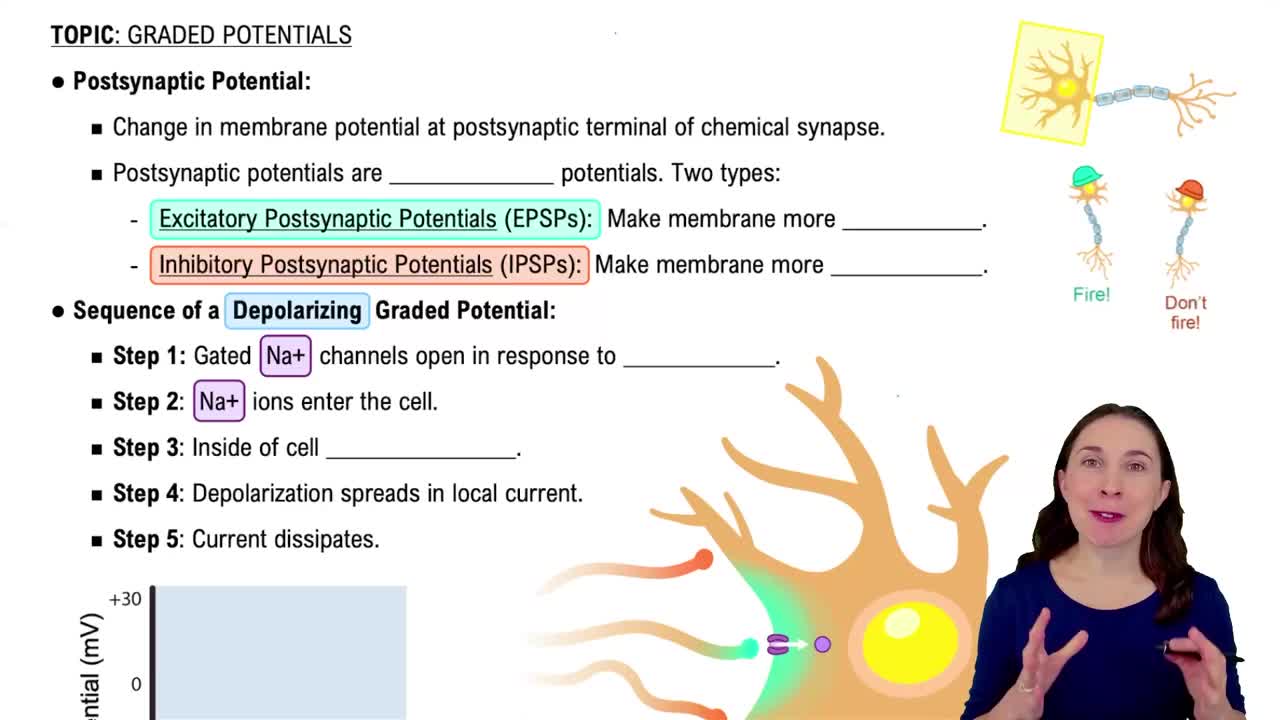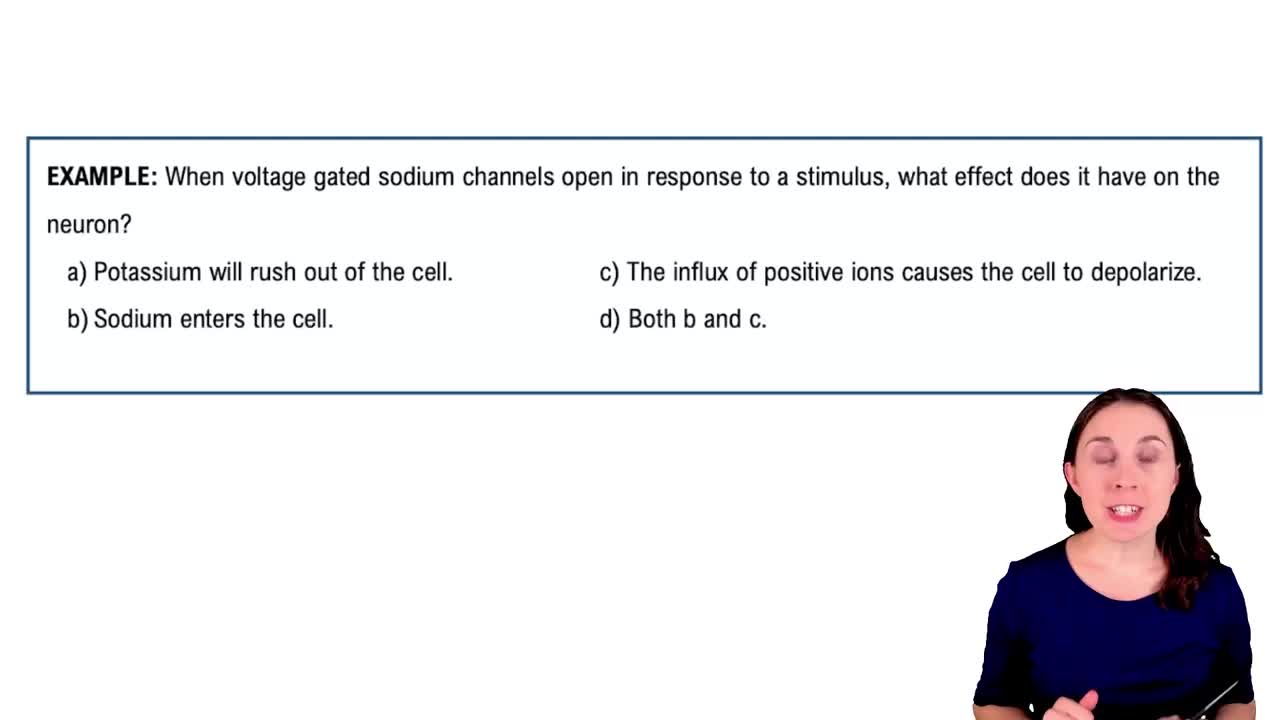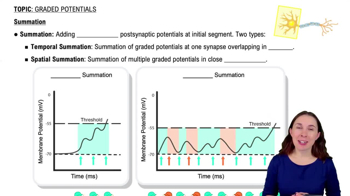Graded Potentials definitions Flashcards
 Back
BackGraded Potentials definitions
1/15
Terms in this set (15)
- Graded PotentialsChanges in membrane potential occurring in the soma and dendrites, influenced by synaptic activity.
- Chemical SynapsesThe most common type of synapse in the human body, facilitating neuron communication.
- Postsynaptic PotentialsMembrane potential changes at the postsynaptic terminal, can be excitatory or inhibitory.
- Excitatory Postsynaptic Potential (EPSP)Depolarizes the membrane, increasing the likelihood of an action potential.
- Inhibitory Postsynaptic Potential (IPSP)Hyperpolarizes the membrane, decreasing the likelihood of an action potential.
- DepolarizationA process where the membrane potential becomes more positive due to sodium ion influx.
- HyperpolarizationA process where the membrane potential becomes more negative, inhibiting action potential.
- Sodium ChannelsGated channels that open to allow sodium ions into the cell, causing depolarization.
- Leak ChannelsChannels that allow ions to passively diffuse across the membrane, affecting potential.
- SummationThe additive effect of multiple postsynaptic potentials to reach action potential threshold.
- Temporal SummationSummation of graded potentials from one synapse overlapping in time.
- Spatial SummationSummation of graded potentials from multiple synapses in close proximity.
- ThresholdThe membrane potential level that must be reached to trigger an action potential.
- Action PotentialA rapid rise and fall in membrane potential that propagates along the neuron.
- NeuronA nerve cell that transmits signals through electrical and chemical means.



